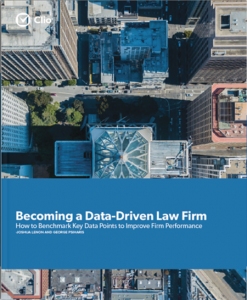 A couple of weeks ago, I wrote an article about how good attorneys may make “bad” arguments from time to time. Of course, sometimes lawyers advance bad points in order to pursue another objective, like preserving arguments for appeal or distracting other litigants. However, it is of course true that sometimes adversaries make just plain old awful points. From my experience, there are a few things you can look for when determining if your adversaries are full of… bad arguments.
A couple of weeks ago, I wrote an article about how good attorneys may make “bad” arguments from time to time. Of course, sometimes lawyers advance bad points in order to pursue another objective, like preserving arguments for appeal or distracting other litigants. However, it is of course true that sometimes adversaries make just plain old awful points. From my experience, there are a few things you can look for when determining if your adversaries are full of… bad arguments.
Old Caselaw
When I was in law school, I had a research and writing professor who told students to rarely cite cases that were older than themselves. Now, as I practice law for hopefully many years into the future, it will be more ridiculous to comply with this rule. However, I graduated law school relatively recently, so this is still a good standard to live by. I have heard other practitioners who rarely cite to cases before Y2K. Now that most court opinions are published online, there are tons of recent cases which litigants can use, and this seems like a reasonable rule as well. The reasoning behind these rules, of course, is that older cases might be less persuasive to courts than newer authority. In addition, older cases might have been superseded by newer decisions.
However, sometimes when stringing together a flimsy argument, litigants may be compelled to cite old cases, and this can illustrate how shaky their arguments are. One time earlier in my career, I was tasked with defending a nasty ejectment action based on the fact that my client had a license to use some storage space. My adversary’s papers looked decent, but many of the cases he cited were handed down when Woodrow Wilson was president. The language in the cases that my adversary cited was really old-fashioned as well, and something did not seem right. I ended up discovering that more recent legislation had superseded many of the authorities my adversary was citing, but he was trying to “Frankenstein” an argument using stale cases. Of course, sometimes you might have to cite to old cases, since these decisions are the only authorities that explain well-established principles. However, if your adversary is citing to cases outside of living memory, chances are that they are advancing pretty week arguments.
Unpublished Opinions
If an adversary is relying on unpublished opinions, it usually means that they are struggling to string together an argument. Many courts disfavor citations to unpublished opinions, and it seems like the Bluebook hates unpublished decisions too, why else would they require the citations to be so long? Of course, there are times when you find an unpublished opinion that is directly on point, and in these instances, it might make sense to cite to such a case. However, most of the time, if someone is citing to unpublished opinions, it means that they are struggling to make a point.
I remember one time, I was litigating a case in state court, and my adversary was trying to cite to a “well-established” principle of contract law. However, my adversary was citing to an unpublished bankruptcy court opinion that wasn’t even in the same state as this state court breach of contract action. Of course, my adversary was scraping the barrel for anything that would support his case, and this is usually the situation when unpublished opinions are cited.
Out-of-Jurisdiction Authority
I have litigated against some attorneys who I think need to go back to law school to relearn which authorities are binding on a court. Indeed, I routinely see lawyers cite to cases from across the country when they could probably find authority in the state where an action is filed. I once got a “nastygram” from an adversary that purported to put me on notice that my breach of contract lawsuit was meritless based on “national law” on breach of contract matters. The attorney then proceeded to cite authorities from across the country, including the Second Circuit and the state courts of California. However, the lawsuit was not filed in any of these jurisdictions. Rather than intimidate me, the letter just reinforced that my adversary was lazy, and was copying and pasting low-hanging authority he had “in the can” from past lawsuits regarding similar issues.
Another way you can tell that an adversary is cutting the bologna pretty thin is if they cite to a federal case in a state court action. Of course, there are instances in which federal courts apply state laws, but in most areas of the law, federal decisions are not binding on state courts, and there is plenty of state authority to cite in any case. Usually if an adversary is citing to a federal case, it means that they found the one oddball, exceptional case that would support their argument against the grain of prevailing law on a subject.
I remember one time, I was arguing for summary judgment in a state court case. My adversary pinned much of his opposition to a federal decision from a distant district within the state. I stood up at oral argument and related that the court should know that my adversary had little to stand on, since he was relying so heavily on this one federal case. The judge seemed to agree, and I ended up winning summary judgment.
All told, lawyers have a responsibility to diligently represent their clients, and this might mean that lawyers have to think creatively to string together the best points possible. However, there are some easy ways you can tell if your adversary is full of bad arguments.
 Jordan Rothman is the Managing Attorney of The Rothman Law Firm, a New Jersey and New York litigation boutique. He is also the founder of Student Debt Diaries, a website discussing how he paid off his student loans. You can reach Jordan through email at [email protected].
Jordan Rothman is the Managing Attorney of The Rothman Law Firm, a New Jersey and New York litigation boutique. He is also the founder of Student Debt Diaries, a website discussing how he paid off his student loans. You can reach Jordan through email at [email protected].















 Get a better starting point with attorney created legal documents, checklists, guides and more. »
Get a better starting point with attorney created legal documents, checklists, guides and more. » Gain a clear strategic advantage with the fastest answers and most valuable insights. »
Gain a clear strategic advantage with the fastest answers and most valuable insights. » Simplify your matter management, client communication and financial reporting in one seamless tool. »
Simplify your matter management, client communication and financial reporting in one seamless tool. »